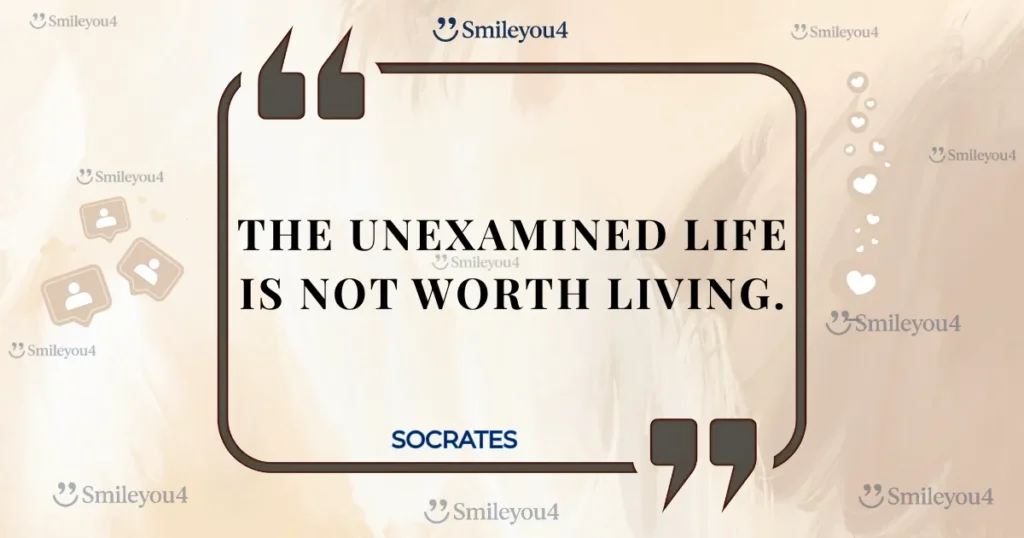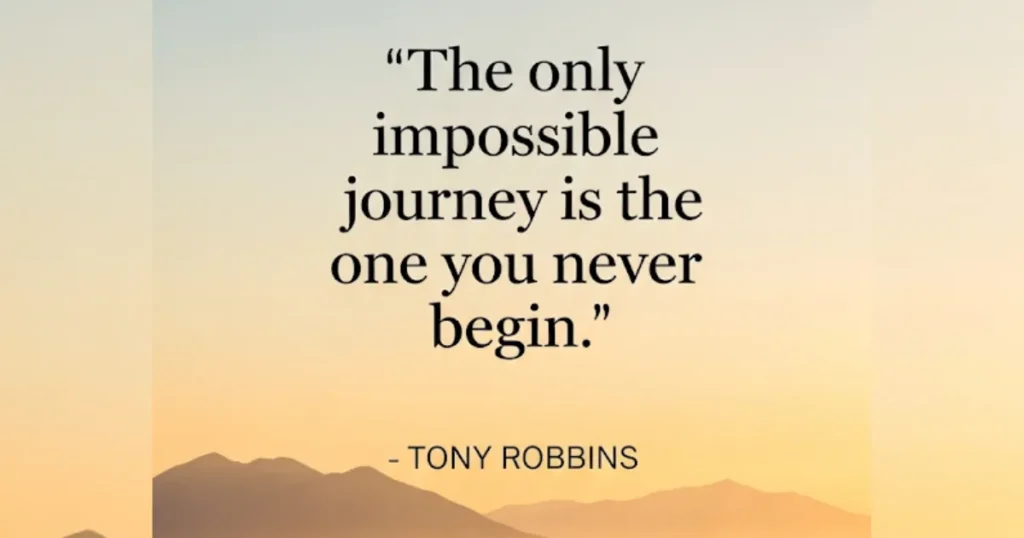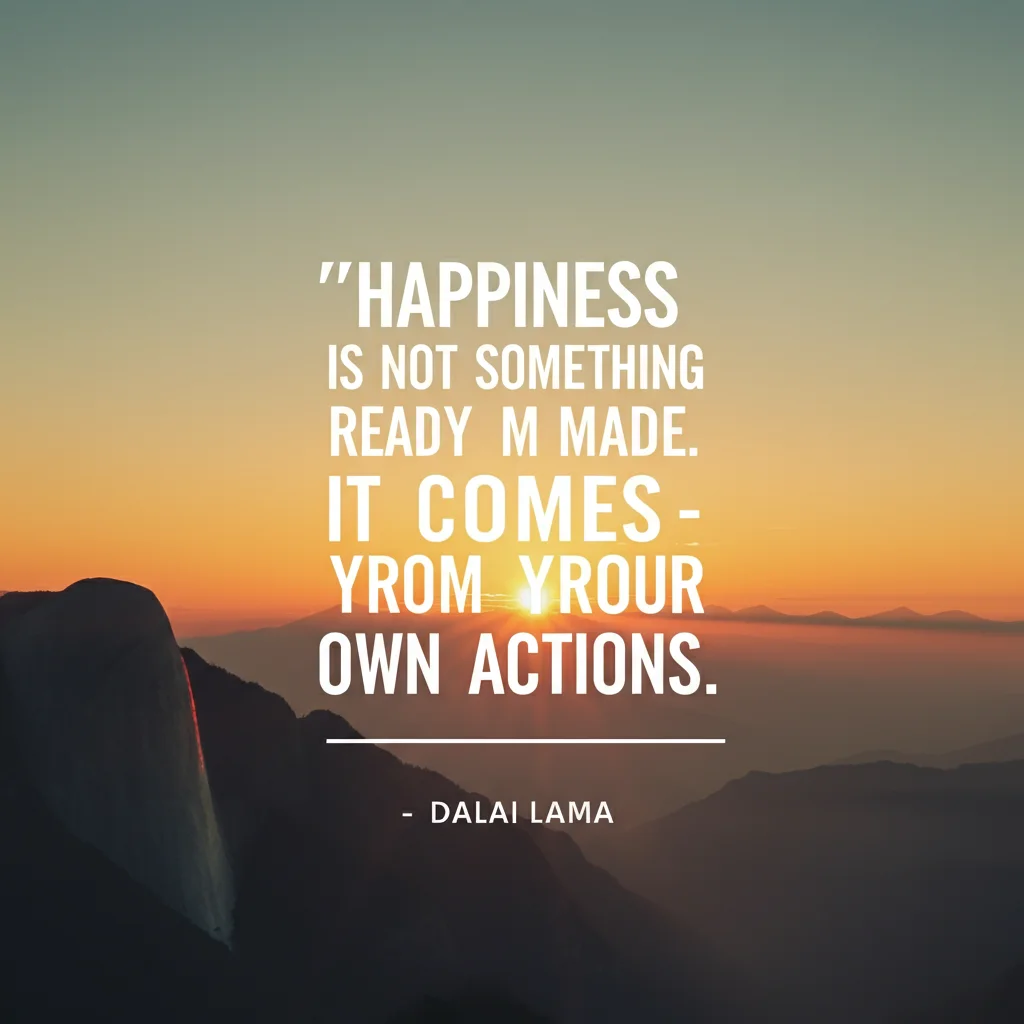What if the secret to a truly fulfilling life has been hidden in plain sight for over 2,400 years? The ancient Greek philosopher Socrates understood something profound about human existence when he declared, “The unexamined life is not worth living.” This powerful statement from Socrates isn’t just philosophical wisdom—it’s your roadmap to discovering meaning, purpose, and authentic happiness in everything you do.

You probably know the feeling of going through the motions, day after day, without really thinking about why you’re doing what you’re doing. Maybe you wake up, check your phone, rush through your routine, and collapse into bed exhausted, only to repeat the cycle tomorrow. But what if there’s more to life than this endless loop of unconscious living?
Today, you’ll discover how embracing Socrates’ timeless wisdom can transform your daily experience from mindless routine into meaningful purpose. We’ll explore practical ways to examine your life, uncover your authentic values, and create the kind of existence that truly matters.
Understanding Socrates’ Revolutionary Philosophy
The Philosopher Who Changed How We Think About Living
When Socrates proclaimed that the unexamined life is not worth living, he spoke these words during his trial in Athens in 399 BC. Facing the death penalty for allegedly corrupting the youth and impiety, he could have easily apologized and saved his life. Instead, he chose to defend his life’s work of encouraging people to question everything and examine their beliefs.
Socrates didn’t just teach this philosophy—he lived it. He spent his entire life asking probing questions, challenging assumptions, and helping others discover truth through careful self-reflection. His famous method of questioning, now known as the Socratic method, revolutionized how we approach learning and understanding.
This commitment to examination cost him his life, but it gave the world something invaluable: the understanding that an unthinking, unreflective life lacks the depth and meaning that make existence worthwhile. Socrates showed us that real living requires conscious awareness of our choices, values, and purpose.
Why This Quote Transforms Everything
“The unexamined life is not worth living.” These eight words contain the power to revolutionize how you approach every single day:
- “The unexamined life” refers to living without reflection, awareness, or intentional choice
- “Is not worth living” suggests that mere existence without conscious engagement lacks true value
- The complete message challenges you to become an active participant in your own life story
This philosophy works because it shifts you from passive consumer to active creator of your experience. When you truly examine your life, you stop accepting what doesn’t serve you and start building what does.
The Science Behind Self-Reflection and Life Satisfaction
How Your Brain Benefits from Self-Examination
Modern neuroscience confirms what Socrates intuitively understood about the power of self-reflection. Research shows that people who regularly examine their thoughts, feelings, and behaviors experience significantly higher life satisfaction and emotional well-being.
Mental benefits of self-examination include:
- Enhanced self-awareness leading to better decision-making
- Increased emotional regulation through understanding your triggers and patterns
- Improved problem-solving abilities as you recognize what works and what doesn’t
- Greater sense of purpose and direction in life
Psychological advantages:
- Higher levels of happiness and life satisfaction
- Reduced anxiety and depression through increased self-understanding
- Stronger relationships as you become more aware of your impact on others
- Enhanced resilience during challenging times
This scientific backing proves that the unexamined life is not worth living Socrates wisdom isn’t just ancient philosophy—it’s a practical strategy for optimal mental health and fulfillment.
The Reflection-Growth Connection
Studies reveal that people who engage in regular self-reflection show measurable improvements in personal growth and goal achievement. When you examine your life consistently, you develop what psychologists call “metacognitive awareness”—the ability to think about your thinking.
This awareness allows you to:
- Recognize patterns that help or hinder your progress
- Make conscious choices aligned with your values
- Learn from mistakes instead of just repeating them
- Adapt your approach when circumstances change
Modern Champions of the Examined Life
Oprah Winfrey: Daily Reflection as Success Strategy
Oprah perfectly embodies Socrates’ belief that the unexamined life is not worth living. Her daily practice of journaling, meditation, and self-reflection has been central to her transformation from poverty to global influence. She doesn’t just live her life—she consciously examines and learns from every experience.
Her approach to self-examination includes:
- Keeping gratitude journals to recognize daily blessings
- Regular meditation to understand her thoughts and emotions
- Asking herself deep questions about her choices and their alignment with her values
- Using her television platform to explore meaningful topics that promote growth
Oprah proves that when you examine your life consistently, you don’t just succeed—you create success that serves others too.
Warren Buffett: The Power of Reflective Decision-Making
Warren Buffett, one of the world’s most successful investors, attributes much of his success to what he calls “thinking time.” He spends hours each day reading, reflecting, and examining his investment decisions and life choices.
His examination practices demonstrate:
- Regular review of past decisions to learn from both successes and failures
- Deep questioning of assumptions before making important choices
- Consistent evaluation of whether his actions align with his long-term values
- Daily reading and reflection to expand his understanding
Buffett shows that the unexamined life is not worth living principle applies to every area of life, from business to personal relationships.
Michelle Obama: Authentic Living Through Self-Awareness
In her memoir “Becoming,” Michelle Obama reveals how consistent self-examination helped her navigate roles as a lawyer, mother, and First Lady while staying true to herself. Her commitment to understanding her values and motivations exemplifies Socrates’ wisdom.
Her journey includes:
- Regular questioning of societal expectations versus personal values
- Honest examination of her strengths, weaknesses, and growth areas
- Conscious choices about how to use her platform and influence
- Ongoing reflection about what truly matters in life
Obama demonstrates that examining your life isn’t selfish—it’s essential for authentic contribution to the world.
Practical Steps to Examine Your Life Daily
Start Your Morning with Intentional Reflection
Transform your mornings by incorporating Socrates’ philosophy into your daily routine. Instead of rushing into the day unconsciously, take time to examine your thoughts, feelings, and intentions.
Morning reflection practices:
- Ask yourself: “What do I want to accomplish today, and why does it matter?”
- Examine your emotional state: “How am I feeling, and what might be influencing these feelings?”
- Review your priorities: “Are my planned activities aligned with my values?”
- Set intentions: “Who do I want to be today, and how can I show up authentically?”
Weekly deeper examination:
- Reflect on the past week: “What went well, and what could I improve?”
- Question your habits: “Which routines serve me, and which hold me back?”
- Examine your relationships: “Am I contributing positively to the people around me?”
- Assess your growth: “What am I learning about myself, and how am I changing?”
Create Your Personal Examination System
Develop specific practices that help you live the unexamined life is not worth living Socrates wisdom consistently:
Daily journaling prompts:
- What challenged me today, and how did I respond?
- What brought me joy, and why was it meaningful?
- What decisions did I make, and what influenced those choices?
- How did I treat others, and what does this reveal about my character?
Monthly life reviews:
- Are my current goals still aligned with my values?
- What patterns do I notice in my behavior and choices?
- Where am I growing, and where do I feel stuck?
- What would I change if I were starting fresh today?
Apply Self-Examination to Key Life Areas
Socrates believed that examination should touch every aspect of your existence. Here’s how to apply his wisdom to different areas of your life:
Career and work:
- Why do I do the work I do? Is it meaningful to me?
- How do my professional choices align with my personal values?
- What impact am I having through my work?
- Am I growing and learning, or just going through the motions?
Relationships:
- How do I show up in my relationships with family and friends?
- What kind of friend, partner, or family member am I?
- Do I listen more than I speak? Do I judge more than I understand?
- How can I contribute more positively to the people I love?
Personal growth:
- What beliefs do I hold that might be limiting me?
- Where am I settling for less than I’m capable of?
- What fears are holding me back from pursuing my dreams?
- How am I different today than I was a year ago?
Overcoming Common Obstacles to Self-Examination
Moving Beyond Fear of What You’ll Find
Many people avoid examining their lives because they’re afraid of what they might discover. This fear keeps them trapped in unfulfilling patterns and prevents the growth that comes from honest self-assessment.
Strategies for courageous examination:
- Remember that awareness is the first step toward positive change
- Approach self-reflection with curiosity rather than judgment
- Focus on growth opportunities rather than past mistakes
- Celebrate the courage it takes to look honestly at your life
Building self-compassion:
- Treat yourself with the same kindness you’d show a good friend
- Remember that everyone has areas for improvement
- Focus on progress, not perfection
- Use discoveries about yourself as stepping stones, not stumbling blocks
Creating Time in a Busy Schedule
In our fast-paced world, many people claim they don’t have time for the kind of reflection Socrates advocated. However, examination doesn’t require hours of meditation—it can be woven into your existing routine.
Quick examination techniques:
- Use commute time for reflection instead of just entertainment
- Ask yourself one meaningful question during each meal
- Spend five minutes before bed reviewing the day
- Turn routine activities like showering into opportunities for thought
Making reflection a priority:
- Schedule reflection time like any other important appointment
- Start small with just a few minutes daily
- Use phone reminders to prompt regular check-ins with yourself
- Remember that the unexamined life is not worth living—make time for what matters
Building Your Life Examination Practice
Daily Questions That Transform
Develop a toolkit of powerful questions that help you live by Socrates’ principle


